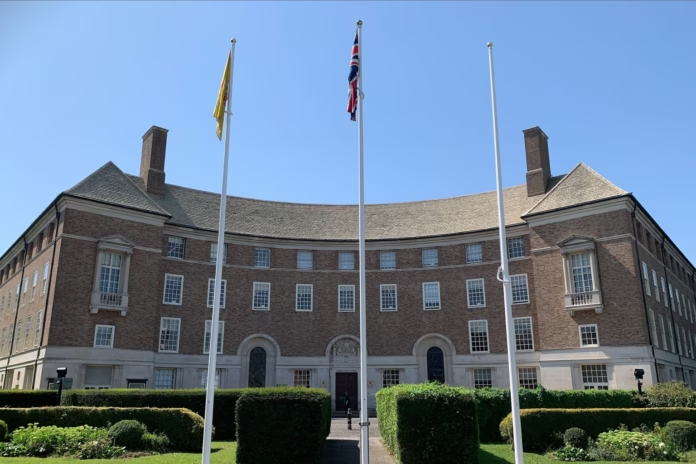
A review of local government audit announced by the government this week will consider new measures to give the public better access to financial information produced by section 151 officers.
Local government secretary James Brokenshire this week revealed the review, which will report next Spring, will be headed up by former Chartered Institute of Public Finance and Accountancy (CIPFA) president Sir Tony Redmond.
Brokenshire told the House of Commons this week that the review will examine the purpose, scope and quality of statutory audits of councils in England and the supporting regulatory framework.
The review follows concerns about the quality of local authority audits following the abolition of the Audit Commission in 2014.
Speaking to CIPFA’s annual conference in Birmingham this week, Brokenshire said: “Concerns have been recently raised about audit quality and whether the audit framework is too fragmented.”
But he said that restoring confidence in the audit regime needs to be accompanied by improvements in the way financial information is presented by local authorities.
He said: “As a result, I have also asked Tony to include transparency of financial reporting within the scope of his review.
“To be absolutely clear, I am approaching this with an open mind but our aim must be to ensure that the financial reporting and audit framework helps members, section 151s and chief executives to make informed and responsible decisions about improvements and is more open and accountable to our citizens.”
Brokenshire’s statement to the Commons said the terms of reference for the review will cover:
- Whether the audit and related regulatory framework is operating in line with the policy intent set out in the Local Audit and Accountability Act 2014;
- Whether the reforms have improved the effectiveness of the control and governance framework along with the transparency of financial information presented by councils;
- Whether the current statutory framework for local authority financial reporting supports the transparent disclosure of financial performance and enables users of the accounts to hold local authorities to account; and
- Recommendations on changes to the framework and process.
During a question and answer session at CIPFA’s conference, Brokenshire was asked whether he thought the government had made a mistake by abolishing the Audit Commission.
He said: “I think the Audit Commission was a structure and system of its time. We have a new system post-2014 with the different arrangements on audit, with relationships we have with peer review and the Local Government Association.
“We do need to, yes, look at how we improve that, yes how we can look at good governance and sharing good practice and the mechanisms for doing that.
“But, no, I am not somehow trying to send a message that we want to re-establish the Audit Commission.”
Speaking to Room 151 immediately after Brokenshire’s speech, CIPFA chief executive Rob Whiteman said the review felt like a “turning point”.
He said: “We really welcome the review of audit.
“Long before the Audit Commission was created let alone abolished, local public audit going back to the 19th century has always played a vital role in good local services and good local governance.
“We feel that the baby was thrown out with the bathwater when the Audit Commission was abolished and so the government recognising this by saying it will review the importance of local audit we think is great.
“Today feels like a turning point.
“We have had an era of the end of the Audit Commission and what followed.
“Today feels like the first day of a new era emerging. None of us wants back to the future but there is a role for improved oversight and ensuring councils receive appropriate support.”
In March, at Room151’s LATIF North conference, the issue of transparency was raised by Gareth Caller, head of the local government finance unit at the Ministry of Housing, Communities and Local Government.
He said that the department had concerns about the big variations in how well councils are presenting their investment and capital strategies online.
He said: “For every capital strategy, for every investment strategy, that is really easy to find there is one that is buried either somewhere on page 437 of the budget council papers or in cabinet or executive papers with a summary report presented to cabinet.”
During his speech this week, Brokenshire also said that fundamental change in the structures of local government could take place under the next prime minister.
He said: “I believe the next leader of my party will need to rethink the relationship between central and local government and systems and structures underpinning local government, acknowledging the part we all play in giving local authorities the freedom to deliver but also spotting problems earlier and helping each other improve.”













